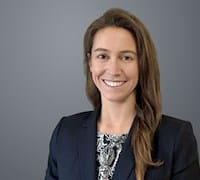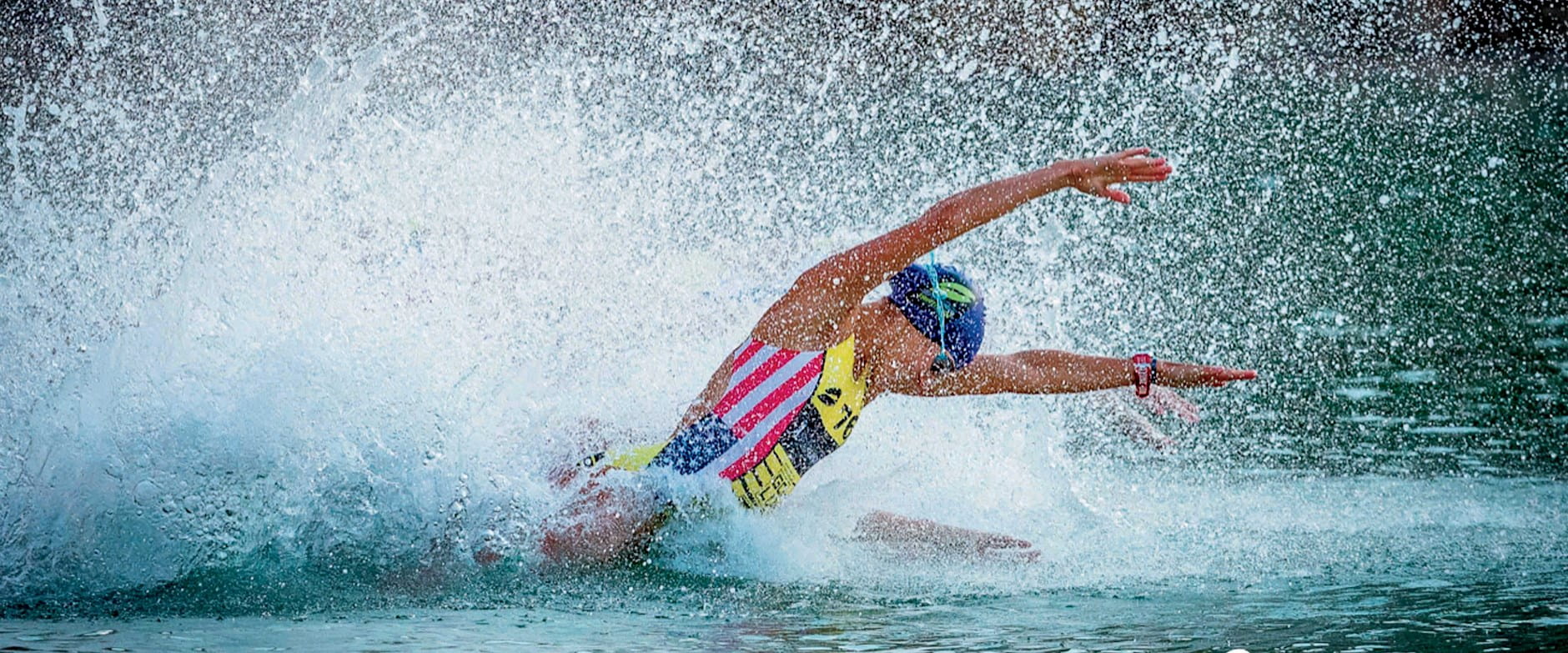As a young girl growing up in Shaker Heights, Ohio, Sarah Alexander, ’15, spent every spare moment training to be a competitive figure skater. Even though she didn’t have the right physique—she was tall in a sport that favors being short—she loved to express herself through music and movement.
In fourth grade, Alexander faced a difficult jump she just couldn’t master. “I remember crying in the car on the way to skating lessons, begging my mom to quit. She made a deal with me: if I still wanted to quit once I got that jump, I could. But I couldn’t give up before then.” It took a whole year, but Alexander finally landed the jump—and then continued to figure skate competitively for years.
By the time she came to Chicago Booth in 2013, Alexander was working as an environmental consultant, and kept sports in her life by racing triathlons, grueling multisport races that combine swimming, cycling, and running. The self-belief and resilience she developed as an athlete informed her approach to work and studies. She wanted to share that.
“I always found my athletic experience to be a source of empowerment,” she says, “not only in sports, but also in the classroom, interviews, and beyond. I wanted to find a way to pass that along.”
She discovered that opportunity as a coach in the Chicago chapter of Girls on the Run (GOTR), a national nonprofit that teaches young women empowerment and determination through training them to run a 5K in just a few months. “It was amazing to see how running brought together so many women and girls from across the city. It reinforced how sport can be a uniting force,” she says.

“I always found my athletic experience to be a source of empowerment, not only in sports, but also in the classroom, interviews, and beyond. I wanted to find a way to pass that along.”
— Sarah Alexander
The program’s curriculum actively connects accomplishments in running with managing other stresses that girls in third through fifth grade face in their lives. “Women can be really hard on themselves, to the point where I’ve seen it deter them from pursuing opportunities for fear of failure,” says Alexander. A good coach, she says, can help instill a “growth mindset,” teaching an athlete to bounce back from a bad workout and set incremental goals that translate into ultimate success. “The way the program was able to connect the dots between overcoming obstacles, building self-confidence, and extending those lessons to other parts of their lives was very powerful.”
Mentoring these girls was incredibly rewarding to Alexander: “There was one girl in my group who didn’t own a pair of running shoes when she started. But just months later, she was one of a handful of girls who ran the whole 5K without stopping. It was incredible to see her beaming with joy and accomplishment in the end.”
Alexander’s next steps after Booth were unexpected: after placing well in several races including Age Group World Championships, she qualified to race professionally. She spent the five years after earning her MBA on the road, competing everywhere from Indiana to Australia. After several podium finishes and numerous half-Ironman events, Alexander reached 62nd in the World Triathlon rankings.
In 2020, Alexander took on a new challenge: putting her MBA to use as a management consultant for Boston Consulting Group. She looks forward to coaching young women through GOTR or other local programs again now that she’s settled geographically. “I gain energy from feeling like my experiences can provide fuel for others to overcome their trials,” she says, “whether in sport, studies, work, or personal endeavors.”


